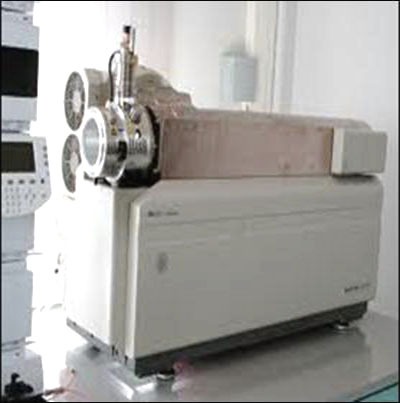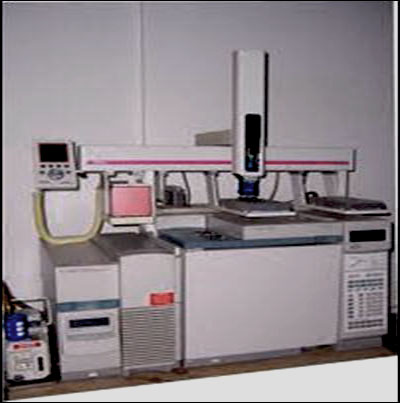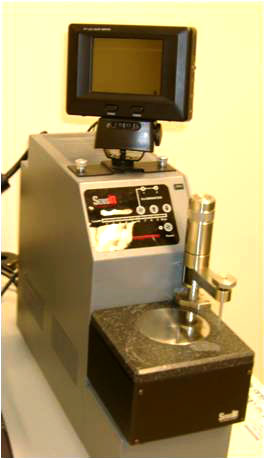Purpose
Chemical Emergency Preparedness & Response (CEP&R) Section is an LRN Level 2 Laboratory which supports the State of Maryland by maintaining a state of readiness to respond immediately to a chemical emergency. In addition, the CEP&R laboratory supports the State’s efforts to monitor the exposure of the citizens to toxic contaminants in their communities. This laboratory analyzes human urine and blood specimens from people potentially exposed to different classes of toxic chemicals.
Instrumentation:
- HPLC – API 4000 QTRAP
- GCMS with Gerstel MPS2
- FTIR
HPLC—API 4000 QTRAP
The HPLC offers speed, resolution, sensitivity, accuracy, and precision enabling variable flow rates and pressures for the separation and analyses of a variety of compounds.
The API 4000 QTrap offers exceptionally low detection limits enabling high sensitivity quantitation over a wide range of flow rates. With advanced scanning capabilities the API 4000 provides the highest sensitivity neutral loss and precursor ion scans. Enhanced multiply charged scan can be used in combinations to provide highly informative results.
GCMS with Gerstel MPS2 
The MPS is a multifunctional autosampler and sample preparation robot for the GC/MS. The MPS provides modern analytical laboratories high throughput, high performance and unparalleled flexibility. Many techniques can be easily automated using the MPS, including solid phase micro extraction (SPME), dynamic headspace analysis and liquid sample preparation. The capillary flow technology of the GCMS system provides comprehensive multidimensional chromatography which provides a visualization of sample components for class determination.
FTIR 
The SensIR FTIR is utilized to analyze and identify solid and liquid substances. The extensive on-board spectral library allows for the rapid identification of these chemicals based upon their distinct molecular fingerprint resulting from their absorption and transmission of the IR radiation passed through them.
Elements Routinely Analyzed
This laboratory analyzes human urine and blood specimens from people potentially exposed to different classes of toxic industrial compounds such as heavy metals, organochlorine pesticides, as well as metabolites of organophosphate and pyrethroid pesticides. This laboratory also performs the analysis of organophosphorus nerve agent metabolites, abrine & ricinine, monochloroacetate, monoflouroacetate, tetramine and heavy metals in urine, in addition to cyanide, volatile organic compounds and metals in human blood. Furthermore, this laboratory has implemented a method for the qualitative analysis of over 60 toxins and poisons in a myriad of matrices. Environmental and consumer product samples suspected of tampering, adulteration or posing a public health threat are also tested.

